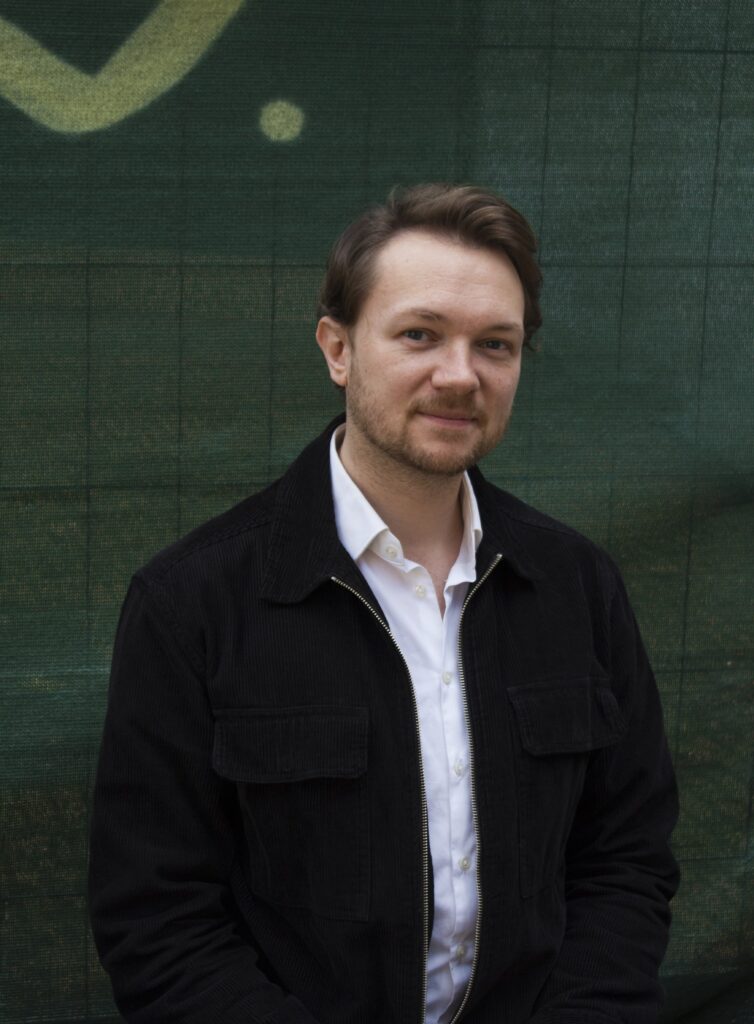Dr. Eckardt Lindner, BA MA
Disstertation: Inorganic Life. On Postvitalism after Deleuze
Abstract

The research of „Inorganic Life“ attempts a renegotiation of a largely unchallanged assumption at the heart of philosophy I will call zonta-centrism. By this I understand the proposition, that living things are different in kind from non-living things and therefore have a distinct ontological status. This paradigmic claim is closely connected with a organo-centric view of life, which makes organisms the exclusive embodiment, model or systematic expression of life, giving it not only a special ontological value, but also promts the need for epistemological registers, that differ from those of and for inorganic matter.
Thereby turning away from the recognisable and representable objects of experience towards an intensive field and its expression, not only Deleuze himself, but also his succesors have developed a new understanding of matter as distributions of intensities . It is a matter, which explicates itself in its own process of extention and therefore has expressive and morphogenetic potentials, which Kants understanding of matter was only willing to grant by introducing a formative drive (Bildungstrieb) or supranatural substrat (übernatürliches Substrat).
Systematic works on the concept of life in Deleuze up until today have their focus almost exclusively on Nietzsche or Bergson and neglect the connection to Kant entirely. But, to avoid a premature vitalistic reading of Deleuze philosophy of life, it is necessary to follow the Kantian line and consequentley think it through to its logical conclusion.
In the doctoral thesis, I will attempt to follow the line of Deleuze‘ philosophy of time, which is in itself a radicalization of Kant’s concept of time as liniarity, and try to delevelop his (not yet well researched) concept of transcendental death drive as the irreversibilty of time. With that I will offer on the one hand a critique of the retrospective logic of teleological judgement and on the other hand will create the conditions for a purely spatio-temporal dynamism, which can account for the creation and reproduction of form, without needing the teleological judgement. This will put the Deleuzian materialism closer to the materialistic philosophy of nature of Schelling and the libidinal materialsm of Lyotard and Land, and will set it apart from Nietzsche’s or Bergson’s vitalisms.
The genetic dimension of the transcendental empirist approach demands a methodological departure from the Aristotelian-Kantian model of science as the search for criteria for identification of life and a move towards the process of expression, meaning a transition from ontology to onto-aesthetics.
Kurzbiographie
Eckardt Lindner is a philosopher based in Vienna and Leipzig. He received his PhD in Philosophy from the University of Vienna for which he was awarded the “Award of Excellence”. He is currently a lecturer in philosophy at the Institute for Philosophy at the University of Vienna and at Webster Vienna Private University. His works are situated between poststructuralism and critical theory and attempt to explore and map the libidinal economy of late capitalism. Most recently, his works have focused on aberrant expressions of life such as exhaustion, insomnia and apathy.
Web
https://homepage.univie.ac.at/eckardt.Lindner/
Publikationen (Auswahl, Stand März 2019)
„Non-Affirmation. On Nietzsche-Deleuzean Idealist Vitalism.“ in: François Laruelle and Non-Standard Philosophy: The Path of Least Resistance (forthcoming).
„Absolute Xenogenesis. Speculations on an Unnatural History of Life.“ in: Matt Rosen (eds.): Diseases of the Head. Philosophy and Speculative Horror. Punctum (forthcoming).
“Einleitung. Auf einer künstlichen Erde”, in: Grant, Iain Hamilton: Die Natur der Natur. Translated by Eckardt Lindner. Berlin: Merve Verlag 2018.
“Synthanatos. Über das artifizielle Begehren” in engagée. Politisch-Philosophische Einmischungen. Ausgabe #3
„Und noch einmal – das Einzigartige. Über das Neue als Norm“, in: ders.: Das Versprechen der Kunst. Aktuelle Zugänge zu Adornos Ästhetischer Theorie. Turia+Kant 2014
„Infinites Leben. Zu einer immanenzphilosophischen Konzeption der Gabe“ in: Journal für Religionsphilosophie. Text&Dialog 2013
Schreibe einen Kommentar